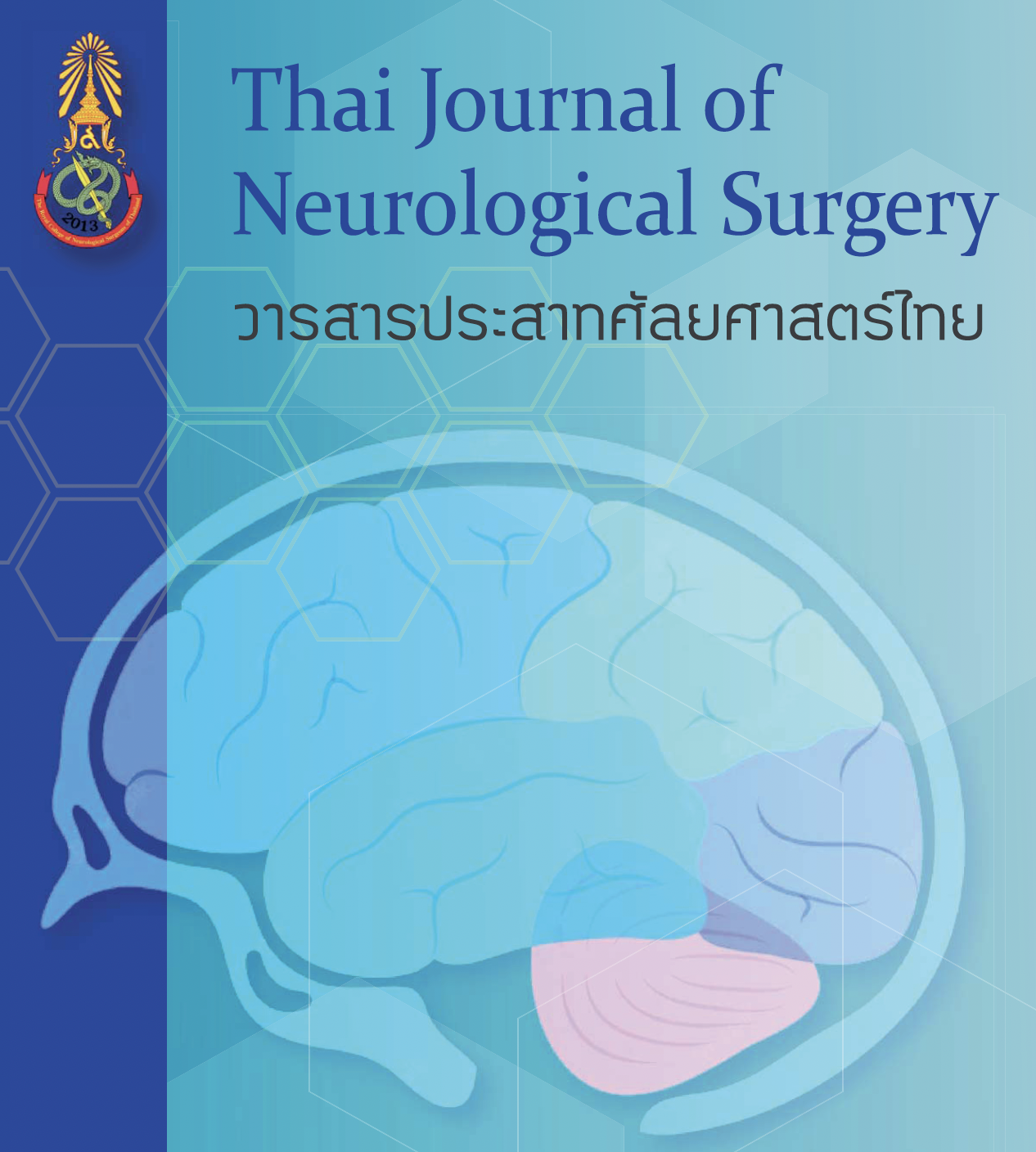วารสาร
รายการวารสารทั้งหมด
บทคัดย่อ
Abstract
Background: Traumatic brain injury and stroke lead to a brain dysfunction and complex neurological sequelae despite aggressive surgical intervention and secondary brain injury prevention. However, alternative neuromodulation therapies can be a potential modality. Cerebrolysin is the drug which contains peptides derived from the brain of a pig that has potential neuroprotective properties and may help to protect and repair brain cells.
Objective: To compare the efficacy and safety of Cerebrolysin with usual care.
Methods: Randomized single blind study from December 2016 to May 2022. 68 Subjects including all the adult patients with severe disability (GOS of 2 and 3) after trauma or stroke. Patients were classified to receive cerebrolysin (n=32) and usual care (n=36). Cerebrolysin was administered intravenously in 30 mL dosage daily for 21 days. The 6-month NIHSS, Barthel Index and modified Rankin Scale were recorded. The outcome scales, safety and complications were compared between two study groups.
Results: Baseline characteristics were comparable between two groups. We found that NIHSS and
modified Rankin Scale were significantly lower in those receiving cerebrolysin

